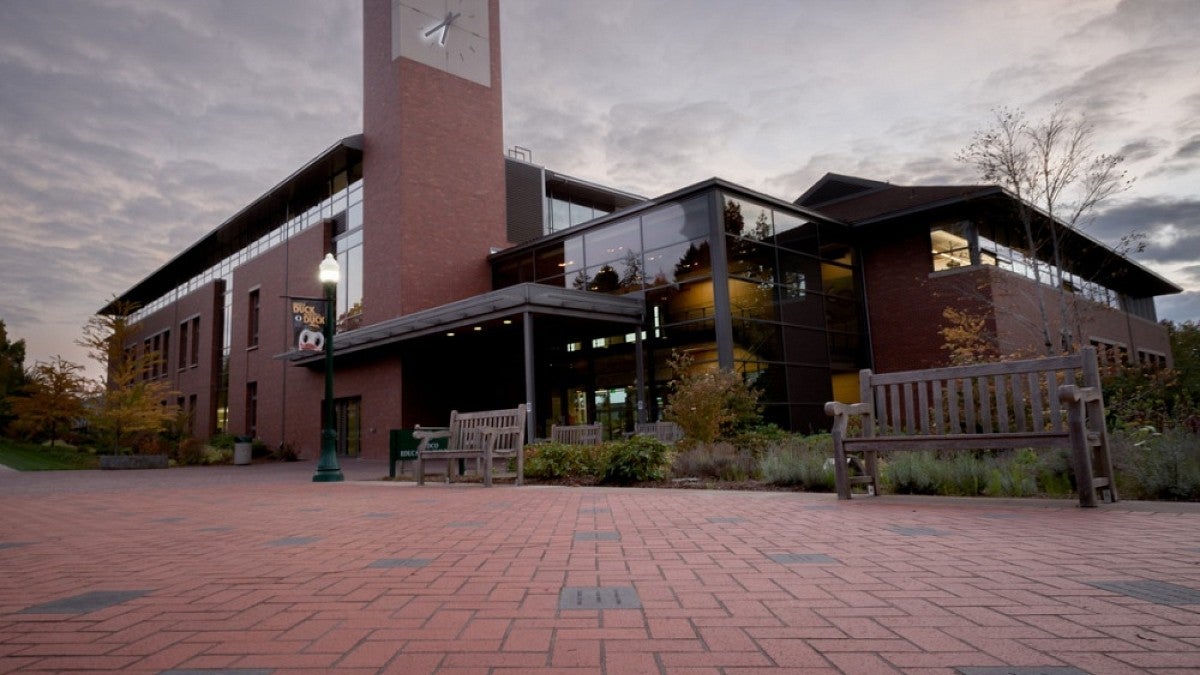After adding several new faculty members, the College of Education’s family and human services undergraduate major is expanding its areas of study and incorporating subjects that have never been offered before.
Jean Kjellstrand, whose expertise is in human services and prevention science, arrived last year and was joined by Elizabeth Budd, who has a background in public health, and Emily Tanner-Smith, who has a background in sociology. The latter two work in areas new to the department.
With experience the new faculty members bring, family and human services director Jessica Cronce is excited about the new opportunities in the program.
“This is wonderful for the program in terms of the breadth of the instruction we can now provide our students from experts across a broad array of disciplines,” she said.
Family and human services has expanded its curriculum while also retooling the major to now require 67 credit hours from the previous 83. The application deadline for the program has been extended to Feb. 6 at 5 p.m., and Cronce hopes that students will take the opportunity to consider the major.
“Family and human services offers our students the opportunity to go on to establish careers in counseling psychology, couples and family therapy, prevention science, child protection services, juvenile justice, corrections, drug and alcohol rehabilitation and treatment and education,” Cronce said. “For those careers that require an advanced degree, family and human services provides opportunities to build a strong foundation of research skills and experience.”
One example of the new offerings stems from Kjellstrand’s “Life Study,” one of the first randomized controlled trials to test the effectiveness of mentoring within the context of re-entry transitional programs for people being released from prison.
For 16 years, Kjellstrand was a social worker tackling problems that affected the well-being and welfare of children, families and communities. Now as a researcher, she provides students with the opportunity to gain field and research experience through her community-based research projects.
“Life Study” was the first project she launched at the UO. The study focuses on how to effectively help incarcerated people successfully re-enter their communities.
Kjellstrand and co-principal investigator Mark Eddy of New York University have partnered with Sponsors Inc., a local nonprofit re-entry organization, on the study.
“It’s a way to address the many needs of people emerging from prison while helping them avoid the cycle of crime and punishment,” Kjellstrand said. “Many incarcerated men and women who complete their sentences leave prison with little more than the clothes they are wearing, a bus ticket and a few dollars, only to return to a community that provides them with little or no support.”
What’s worse, she adds, is that their connections in the community are often old acquaintances involved in activities that contributed to their incarceration in the first place.
“Without an effective support network to help them start a new way of living on the outside, too many previously incarcerated people return to prison, a cycle that is wasteful, expensive and cruel,” Kjellstrand said. “Community-based research projects such as this bring together community partners, researchers and students to create powerful teams to tackle complex, sometimes daunting, social problems in order to make lasting positive social change.”
Each partner brings invaluable facets, she said. Community partners bring their years of hands-on experience and subsequent practice wisdom. Researchers offer their disciplined inquiry and subsequent contextual wisdom.
“Students present fresh ideas and energy and are the place where we need to plant the seeds of continued positive change in our communities,” Kjellstrand said. “In the short time we have been doing this work through the College of Education, we have created multiple research and practice experiences for undergraduates in family and human services, as well as graduate students in counseling psychology.”
In the classroom, she added, students learn core concepts, techniques and basic principles. By moving that learning into the community, these types of community-based research projects and field studies provide students a chance to test their ideas in a dynamic and complex world.
“Linking coursework at the College of Education to practice in the field will make our students innovative, willing to take calculated risks, critical thinkers, and persistent,” Kjellstrand said. “This combination of learning opportunities may be the greatest gift we can offer our students as they go out in the world and launch their careers.”
—By Laurie Notaro, University Communications


